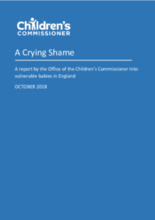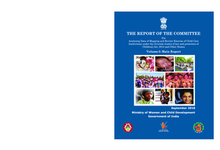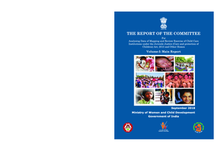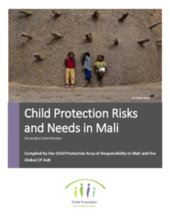Displaying 121 - 130 of 565
This Annie E. Casey Foundation brief, which utilizes the most comprehensive data set ever collected across all 50 states of the US, fills in key details about the lives of young people who have experienced foster care.
This report has two aims: (1) examine how well African governments are delivering on their promises and commitments to children and (2) provide a comprehensive, quantitative and qualitative view of the current realities and trends in the state of child wellbeing in Africa, and their implications for the future.
This report uses local authority data from March 2017 to estimate how many UK children under the age of five are at risk of severe harm, with a particular focus on infants under the age of one.
This project attempts to put numbers on the foster care capacity in each state in the US.
This paper deals with the design and development procedures involved in child protection practices in India.
This study evaluates whether the psychometric properties of the Pediatric Symptoms Checklist-17 (PSC-17), a common behavioral health measure typically used as a dichotomous screening tool for mental health needs, support its use as a continuous measure for tracking behavioral health over time.
This study reports on a large quantitative, descriptive study focusing on children in contact with children’s services on a single date in 2015 across the four UK countries (England, Northern Ireland, Scotland and Wales).
This National Mapping Exercise covering all Child Care Institutions(CCIs)/Homes in the country, except 34 CCIs/Homes in Uttar Pradesh, sheds light on the functioning of CCIs/Homes across the country, in the context of the Juvenile Justice (Care and Protection of Children) Act, 2015. The findings of this report are expected to provide necessary guidance to all stakeholders regarding improvements required in policy formulation and implementation in future.
The present study report is based on data collected through the National Mapping Exercise in India covering all child care institutions (CCIs)/Homes except 34 CCIs/Homes in Uttar Pradesh. The details of scenario captured by these statistics are expected to provide necessary guidance to all stakeholders regarding improvements required in policy formulation and implementation in future.
This review of secondary sources refers to information on child protection risks and violence against children in Mali, collected from 2016 to 2018.





